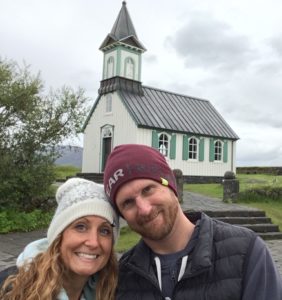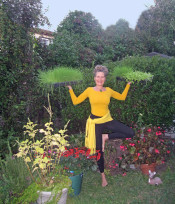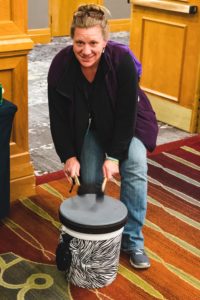
Finding meaning
Spirituality and cancer can collide for those living with a neuroendocrine tumor.
Many people with neuroendocrine cancer look more deeply for meaning in their lives. They want to understand their purpose in life or why they got cancer.
What is spirituality?
Spirituality means the way you look at the world and how you make sense of your place in it. Spirituality can include faith or religion, beliefs, values, and “reasons for being.”
What being spiritual may mean to you
Being spiritual can mean different things to everyone. It’s a very personal issue. Everyone has their own beliefs or practices such as:
- Finding it through religion or faith
- Practicing certain rituals
- Meditating or yoga
- Volunteering or doing things for others
- Teaching
- Reading or writing
- Being in nature or with animals
How neuroendocrine cancer may affect your spirituality
Having cancer may cause you to think about what you believe, whether you’re connected to a traditional religion or not. It’s normal to view the experience both negatively and positively at the same time. Some people find that cancer brings more meaning to their faith.
David Van Bibber’s faith helps him thrive with neuroendocrine cancer. David found support and fellowship in his church family. By attending worship services and meeting with church elders, he finds wisdom and inspiration to stay on the track he set for himself to stay positive and not go to a dark, deep place.
Some people look for a sense of peace or connection with loved ones. They find that having cancer causes them to enhance their bonds with the people closest to them. Others try to forgive themselves for past actions they took or didn’t take. Or they look to forgive others and make it a time for healing relationships.
Dave McCoy didn’t consider himself very religious, but when he found himself feeling alone with a neuroendocrine cancer diagnosis, he found help from people he barely knew. Now he tells others to look for the “angels” in their lives.
Facing anger, disappointment, dismay
It’s also normal to feel distressed. Some people have feelings of uncertainty about their purpose in life. Others have a lack of hope or worries about their loved ones. Others feel that their faith has let them down and they struggle to understand why they have cancer.
After her neuroendocrine cancer diagnosis, Susan Garrett went to a deep, dark place. But inspiration from a woman she never met helped her find new purpose by making “Rocks of Hope” with her church.
Your values may change
Many people also find that cancer changes their values. They make changes to reflect what matters most to them now. The things you own and your daily duties may seem less important. You may decide to spend more time with loved ones or do something to help others. Or you may take more time to do things in the outdoors or learn about something new. For some, faith can be an important part of both coping with and recovering from cancer.
Finding comfort and meaning during cancer
If you want to find faith-based or spiritual support, many hospitals have chaplains who are trained to give support to people of different faiths, as well as those who aren’t religious at all. You could also ask your health care team about local experts or organizations that help cancer patients and survivors. Or, search for NET patient support groups near you.

Some ideas that have helped others find comfort and meaning are:
- Praying or meditating
- Reading uplifting stories about the human spirit
- Talking with others with similar experiences
- Taking time alone to reflect on life and relationships
- Writing in a journal
- Finding a special place where you find beauty or a sense of calm
- Taking part in community or social gatherings for support and to support others
Stacie Chevrier found peace and strength in yoga, which helped her practice mindfulness and build compassion in her journey with neuroendocrine cancer.

Bethany Stillner practices drumming and teaches it at the Chicagoland Carcinoid Fighters support group. Daiva Debra Minter practices a range of holistic healing arts including forest bathing.
During this season of celebrations look for spiritual outlets and expressions that fit your needs. They may help heal and soothe the soul on your journey towards improved wellness and health.
More information: Spirituality in Cancer Care (PDQ®)–Patient Version
Source: Your Faith and Spirituality was originally published by the National Cancer Institute
